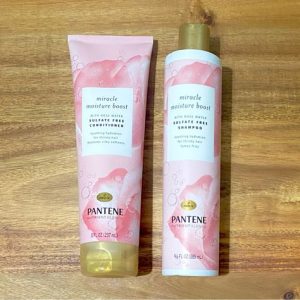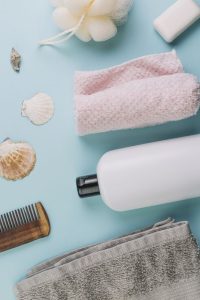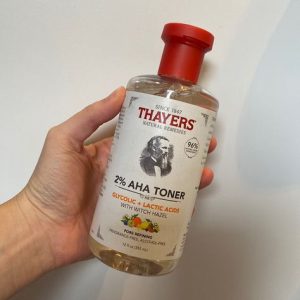Are you looking for a gentler way to cleanse your hair? An alcohol-free shampoo might be the answer! These shampoos are formulated without alcohols that can sometimes strip hair of its natural oils, leading to dryness and irritation. In this comprehensive guide, we’ll explore the benefits of alcohol-free shampoos, different types available, and how to choose the right one for your hair type.
What are Alcohol-Free Shampoos?
Alcohol-free shampoos, as the name suggests, do not contain any types of alcohol, specifically short-chain alcohols like ethanol, SD alcohol, or alcohol denat. These alcohols are commonly used in shampoos for various reasons, including:
Lathering:
Alcohols help shampoos create a rich lather, which can be associated with a feeling of cleanliness.
Preserving:
Some alcohols can act as preservatives, extending the shelf life of the product.
Solvents:
Alcohols can help dissolve oils and dirt on the scalp.
However, these same alcohols can also have drawbacks:
Drying:
Alcohols can strip hair and scalp of natural oils, leading to dryness, frizz, and irritation.
Color Fading:
For those with color-treated hair, alcohols can contribute to faster color fading.

Benefits of Using Alcohol-Free Shampoos
There are several potential benefits to incorporating an alcohol-free shampoo into your hair care routine:
Gentler Cleansing:
Without the drying effects of alcohols, alcohol-free shampoos can cleanse the scalp and hair more gently. This is especially beneficial for people with dry, sensitive, or color-treated hair.
Reduced Frizz:
By preserving natural oils, alcohol-free shampoos can help tame frizz and promote smoother, more manageable hair.
Vibrant Color:
For color-treated hair, alcohol-free shampoos can help minimize color fading, keeping your hair looking its best for longer.
Scalp Soothing:
If you experience scalp irritation or dandruff, alcohol-free shampoos can be less irritating and potentially help soothe a sensitive scalp.
Choosing the Right Alcohol-Free Shampoo for You
With so many alcohol-free shampoos available, selecting the right one for your hair type is important:
Hair Type:
Consider your specific hair needs. Dry hair will benefit from a moisturizing formula, while fine hair might do better with a volumizing option.
Ingredients:
Look for shampoos that contain hydrating ingredients like glycerin, shea butter, or argan oil. These ingredients can help replenish moisture and improve hair health.
Scalp Concerns:
If you have scalp conditions like dandruff or psoriasis, there are alcohol-free shampoos formulated with ingredients to address those specific concerns.
Fragrance:
For those with sensitive scalps, fragrance-free alcohol-free shampoos are a good option to minimize irritation.

Different Types of Alcohol-Free Shampoos
There are various types of alcohol-free shampoos available to cater to different hair needs:
Moisturizing Shampoos:
These shampoos are formulated with hydrating ingredients to nourish dry, brittle hair.
Volumizing Shampoos:
For fine or limp hair, volumizing alcohol-free shampoos can add body and bounce without weighing hair down.
Color-Safe Shampoos:
These shampoos are gentle enough for color-treated hair and help preserve hair color vibrancy.
Clarifying Shampoos:
If you experience product buildup, an occasional clarifying alcohol-free shampoo can help remove buildup without stripping hair of natural oils.
Scalp Soothing Shampoos:
These shampoos often contain ingredients like oatmeal or aloe vera to help soothe and calm a sensitive scalp.
Making the Switch to Alcohol-Free Shampoos
If you’re considering switching to an alcohol-free shampoo, here are a few tips:
Start Slow:
Especially if your hair is used to traditional shampoos, it might take some time to adjust to an alcohol-free formula. Begin by using an alcohol-free shampoo once or twice a week.
Condition Regularly:
Following up with a conditioner is important to replenish moisture, especially when transitioning to an alcohol-free shampoo.
Listen to Your Hair:
Pay attention to how your hair responds to the new shampoo. If your hair feels excessively greasy or weighed down, you might need to adjust the frequency of use or choose a different formula.
Explore the “No Poo” Method:
The “no poo” method involves avoiding shampoos altogether and using alternative cleansing methods like co-washing or natural clays.
The Alcohol-Free Shampoo Experiment: Finding the Right Fit
Making the switch to an alcohol-free shampoo can be a rewarding experience for your hair health. Here are some additional tips to help you find the perfect alcohol-free formula for your hair:
Read Reviews and Recommendations:
Look for online reviews and recommendations for alcohol-free shampoos that cater to your hair type and concerns. Many hair care brands and websites offer reviews and product breakdowns.
Sample Sizes:
If available, consider purchasing travel or sample sizes of different alcohol-free shampoos. This allows you to experiment with a few options before committing to a full-size bottle.
Embrace the Natural Look:
Alcohol-free shampoos may not create the same level of lather as traditional shampoos that contain alcohols. This doesn’t mean your hair isn’t getting clean! Focus on cleansing your scalp thoroughly and massaging the shampoo into your roots.
Give it Time:
It can take some time for your hair to adjust to a new shampoo, especially if you’ve been using traditional formulas for a long time. Be patient and consistent with your alcohol-free routine for a few weeks to see the full effects.
Living a Balanced Hair Life with Alcohol-Free Shampoos
Even with an alcohol-free shampoo routine, there are other practices that contribute to overall hair health:
Deep Conditioning:
Treat your hair to a deep conditioning treatment once or twice a week. This helps replenish moisture and keeps hair healthy and manageable.
Scalp Massages:
Regular scalp massages can improve circulation and promote healthy hair growth. You can incorporate scalp massages into your shower routine while shampooing.
Sun Protection:
Just like your skin, your hair can be damaged by UV rays. Wearing hats or using hair products with SPF protection can help shield your hair from sun damage.
Trim Regularly:
Split ends can travel up the hair shaft, making hair look damaged and frizzy. Regular trims help remove split ends and keep your hair looking healthy.
By incorporating these tips and maintaining a balanced hair care routine, you can experience the full benefits of alcohol-free shampoos and achieve healthy, beautiful hair.
Conclusion: Alcohol-Free Options for a Healthy Hair Journey
Alcohol-free shampoos offer a gentler way to cleanse your hair, potentially reducing dryness, frizz, and scalp irritation. With a wide variety of alcohol-free formulas available, there’s a perfect shampoo to suit your specific hair type and needs. By following the tips in this guide and experimenting with different options, you can embark on a healthy hair journey with alcohol-free shampoos.




Leave a Reply